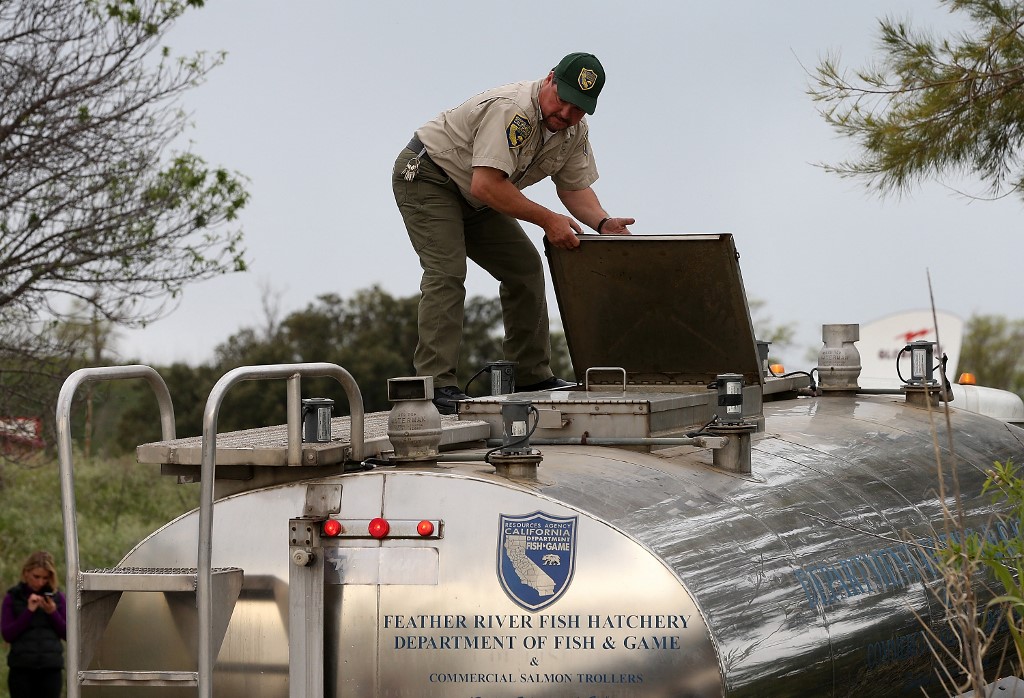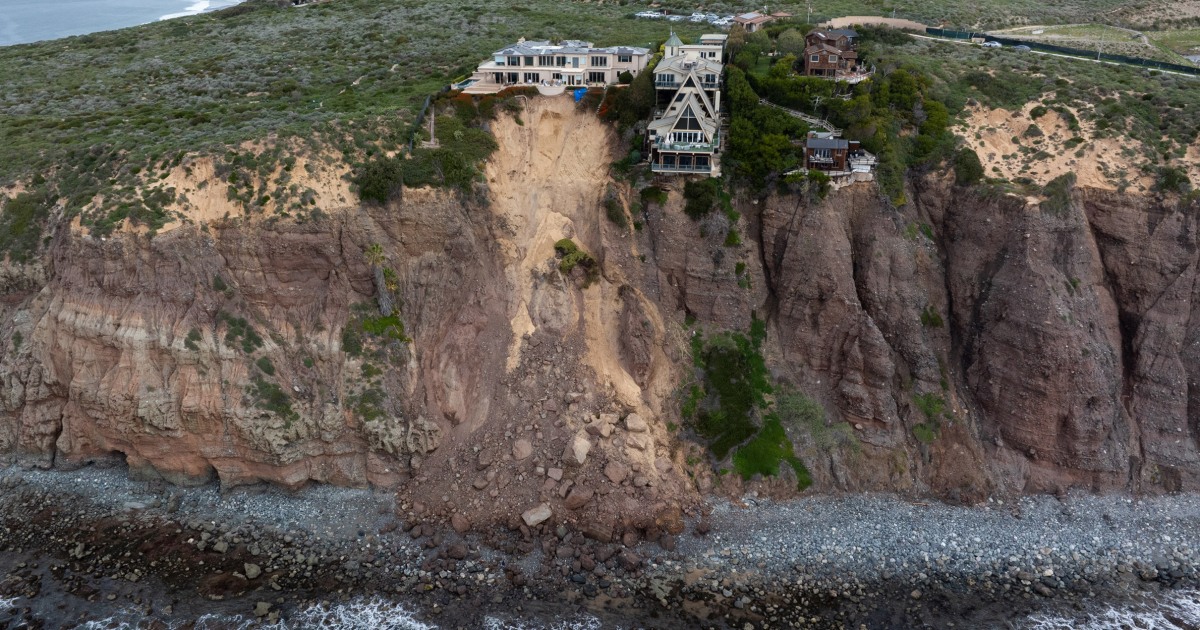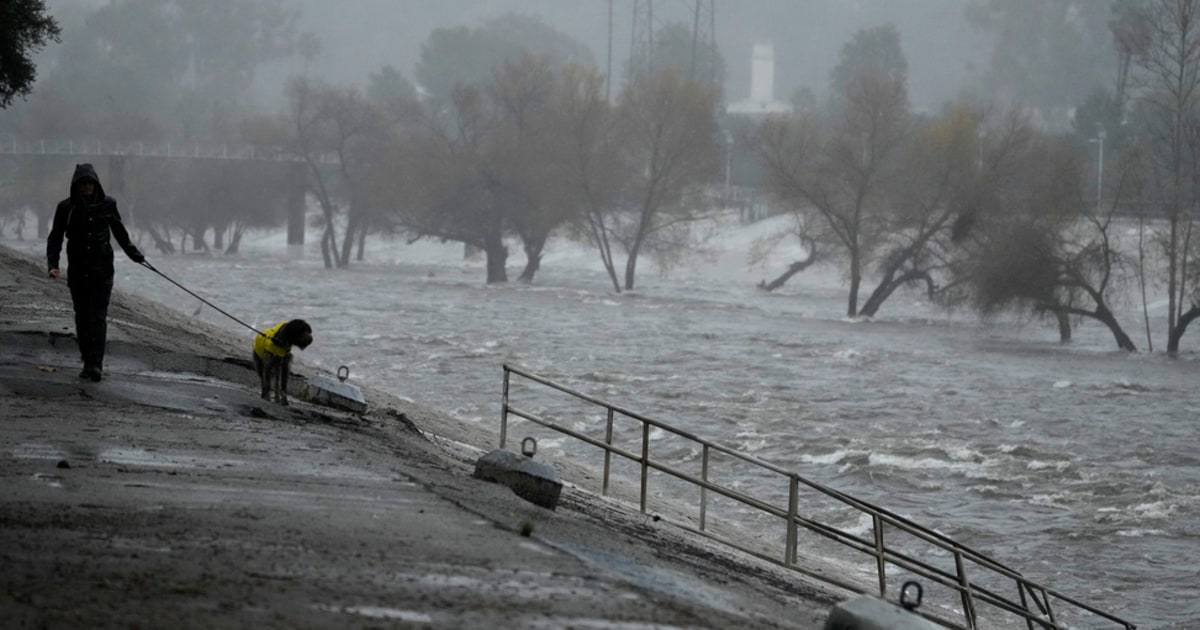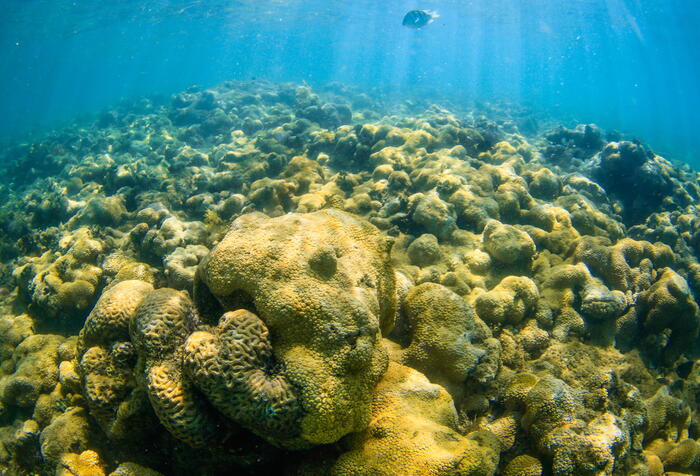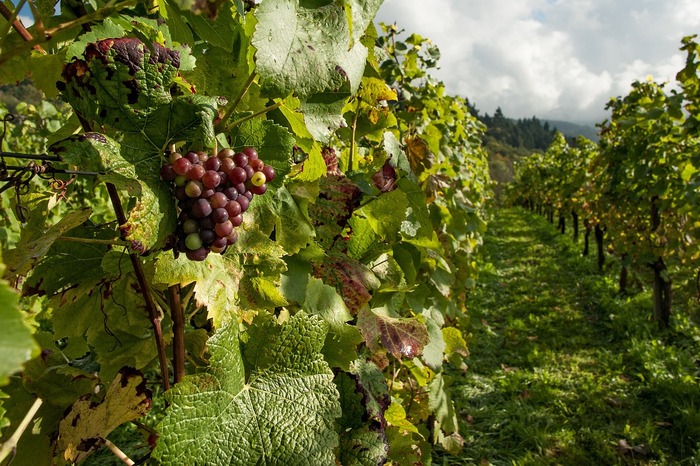In California, salmon no longer just struggle to move up rivers, they struggle to move down rivers as well.
While the drought has made critical the state of many rivers in the Golden State, the authorities have made a spectacular decision and at least not very ecological: millions of young salmon (editor's note, alvins) raised in hatcheries in the region of Central Valley will be transported by tanker to San Francisco Bay and other coastal sites for release.
Chinook salmon, the local species, normally start their lives upstream, then swim to the Pacific, where they grow and grow for three years before returning to their birthplace to spawn.
A drop in the number of "juveniles" in a single year can have lasting effects on the total salmon population, hence the concern of the California Department of Fish and Wildlife. .
The state hatcheries, located along the Feather, American, Mokelumne and Merced rivers, are a gold mine for the region.
Almost 17 million alvins displaced
"Trucking young salmon to downstream release sites has proven to be one of the best ways to increase survival rates to the ocean in times of drought," said Jason Julienne, hatchery supervisor. from the north central region for the CDFW. Indeed, the method has already proved its worth: ten years ago, almost all of the breeding had to be “exfiltrated” due to an exceptional drought. Since then, each year, part of the transport is carried out by truck to increase the chances of survival of the alvins. But this year, state officials say, 16.8 million fish will need to be transported from the four state-run hatcheries until early June, about 20 percent more than in June. a normal year.
Why so "little"? Aware of the catastrophic carbon footprint of such an operation, the American authorities tried to manage the crisis upstream. “We saw a potential drought ahead of time and worked to prepare so we didn't have to truck (a lot) of fish,” Bob Clarke, fishing program supervisor for the area, told the San Francisco Chronicle. Southwest Pacific from the US Fish and Wildlife Service.
For Nicolas Jeannot, engineer at INRAE, in Pont-Scorff, who observes the populations of wild salmon in France, these methods are a reflection of the excessiveness of California.
"When we have the means, we compensate for the impact of man on the environment with millions of dollars," he quipped.
If he recognizes "that they increase their chance of survival", the benefit of such an operation for the biotope in general remains to be proven.
"We can infuse heaps of medium, in France, we had the case of La Loire, where we re-implanted salmon ... But we realize that nothing replaces the normal functioning of nature" explains the specialist.
"Politicians put salmon last"
In California, truck transport does not satisfy everyone. John McManus, president of the Golden State Salmon Association, which advocates for fishermen, criticizes state and federal water officials for allowing farmers to take too much water from rivers and streams . "The condition of the rivers is worsened by political decisions that put salmon last," he said publicly. "He puts his finger on a real problem, believes Nicolas Jeannot, is that the water no longer reaches the sea and that everyone finds it normal: many farmers do not understand that river water that reaches the sea is not wasted water. "
The future of salmon is in any case problematic in the global context of global warming. "Marine conditions are catastrophic for the survival of salmon today, between intensive fishing, melting ice and the presence of new marine parasites" recalls the engineer of the Environmental Research Observatory on diadromous fish in coastal rivers . And to remember that, whatever the ocean, the species does not tolerate fragility: "You need fish that have spent three winters at sea to be pruned to go up several hundred kilometers".

